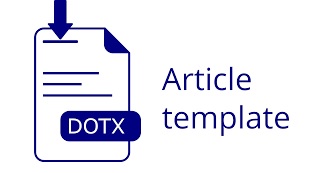Dinamika Koalisi Partai Politik dalam Pencalonan Presiden dan Wakil Presiden pada PEMILU 2024
DOI:
https://doi.org/10.30656/sawala.v12i1.8528Keywords:
Dynamics, coalitions, political parties, candidacy, presidentAbstract
Observing the dynamics of existing coalitions, the 2024 presidential election allows for the formation of four coalition axes. As of today, the United Indonesia Coalition (KIB) is the first coalition to be declared in June 2022. Holding 26.82% of the DPR seats, the Golkar Party, PAN and PPP are in a coalition to face the 2024 General Election (Pemilu) and Presidential Election (Pilpres). The Gerindra Party and PKB appear to be the second axis coalition with 23.66% of the DPR seats. Meanwhile, the combination of the Nasdem Party, PKS and Democratic Party which formed the Change Coalition was able to accumulate the largest number of votes with 28.35% of the DPR seats. As for the PDIP, even though it has not yet appeared to build a coalition with other parties, it has a presidential boarding pass threshold of 20% to directly advance in the presidential election without having to form a coalition with other parties.
This research uses a descriptive method with a qualitative approach. Research Method This research uses a qualitative approach with problem research aimed at obtaining an in-depth and comprehensive description of a phenomenon experienced by research subjects. Discussion results Based on the results of mapping political party support, the KPU noted that the Advanced Indonesia Coalition (KIM), which supports Prabowo Subianto-Gibran Rakabuming Raka, is a political party coalition that has the most valid votes in the 2019 General Election results. The Advanced Indonesia Coalition has 59,762,053 votes. The decision to form a coalition with a political party which initially had opposing ideologies and nominate a candidate pair outside the cadre must ultimately be taken by the political party when it is about to advance in the contest. This is because the voting public in Indonesia is pragmatic. People look more at popular figures or the high electability of candidate pairs, rather than looking at the vision, mission or programs offered by political parties.
References
Isaliani Pradhitya Thimoty, (2020), “Konsep Koalisi Partai Politik Dalam Sistem Presidensial Indonesia†Res Publica Vol. 4 No. 2, Mei - Agustus 2020
E Aspinall & W Berenschot, (2019) Democracy for Sale: Pemilu, Klientelisme, dan Negara di Indonesia. Cornell University Press.
Siboy Ahmad, (2021), Implikasi Pola Koalisi Partai Politik terhadap Dinamika Penyelenggaraan Pemilihan Presiden Indonesia, Perspektif Hukum, Vol. 1 No.1 Mei 2021 : 36 – 58
https://indostrategic.co.id/dinamika-dan-konfigurasi-koalisi-menuju-pilpres-2024/ diakses tanggal 10 April 2023
https://www.kompas.id/baca/riset/2023/02/04/analisis-litbang-kompas-konfigurasi-koalisi-partai-masih-dinamis diakses tanggal 10 April 2023
https://databoks.katadata.co.id/datapublish/2022/06/23/ini-partai-yang-penuhi-syarat-usung-capres-dan-cawapres-pemilu-2024-tanpa-koalisi









